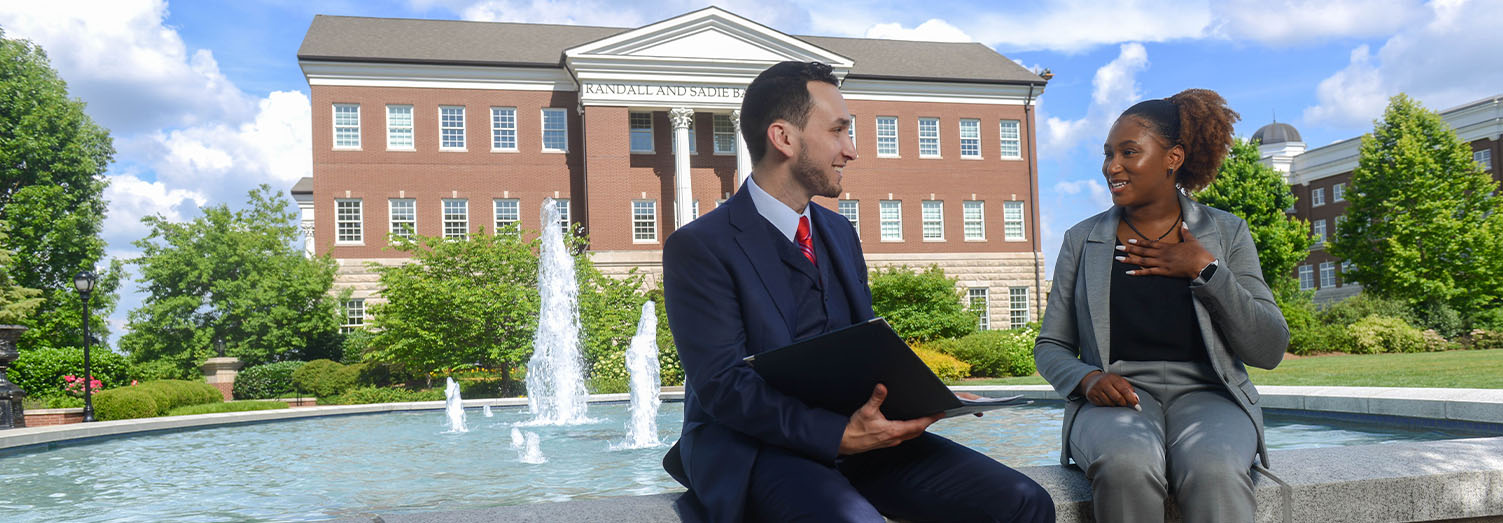Tuition & Fees (Academic Year 2024-2025)
| Tuition for Resident & Non-Resident Students: | $54,280* |
| Consolidated Graduate Student Fee | $1,300* |
| Course Fee | $780* |
*Figure is subject to change.
Cost of Attendance (Academic Year 2024-2025)
| Books & Supplies: | $2,600 |
| Loan Origination Fee: | $1,100 (for federal loan borrowers) |
| Personal Expenses: | $3,600 |
| Rent/Housing: | $21,060 |
| Transportation: | $2,720 |
| Tuition & Fees: | $55,580 |
| Total Budget: | $86,660* |
*This amount is used for Federal loan purposes.
For more information visit our ABA Required Disclosures page.
Scholarships
The College of Law operates a tuition remission scholarship program for entering students. All admitted applicants are automatically under scholarship consideration; there is no separate application process.
When making scholarship decisions, the College of Law reviews each admitted applicant’s full profile in the context of that application cycle’s admitted applicant pool. Admitted students are typically notified of any scholarships awarded to them at the time of acceptance; however, timing may vary in some cases.
The College of Law operates from a scholarship budget and allocates awards accordingly. Scholarships are limited in number, so not all admitted applicants will receive an offer. Students who are most competitive for scholarships, will be those who exceed both of our LSAT and undergraduate GPA medians.
The Belmont Law Dean’s Scholars Program is a merit-based, full tuition remission scholarship program for a select number of exceptionally qualified applicants who have designated Belmont Law as their top choice legal education program. Early Decision applicants with an LSAT profile and cumulative undergraduate GPA exceeding the College of Law's top quartile academic credentials are encouraged to apply. A Dean’s Scholar is the highest honor given to members of the incoming class.
Dean’s Scholars receive the full tuition remission award for all three years of enrollment, provided they remain in good standing, as well as research assistant positions with faculty members. Determining factors of merit include LSAT score(s), cumulative undergraduate GPA, course of study or major, and undergraduate alma mater. Ancillary factors impacting merit include public service, employment while completing undergraduate degree, and significant personal hardships. Recipients must immediately withdraw applications from all law schools to which they have applied and refrain from making application to another legal education program.
Eligibility Requirements
- Apply to the College of Law through the Early Binding Decision application process
- Include a letter of interest in the Dean's Scholars Program with your online Belmont Law application
Letter of Interest Writing Prompt: If any of the following apply to you, please share about your experiences with public service, employment while completing your undergraduate degree, or significant personal hardships. If none of those experiences apply to you, please share anything that will help the admissions committee get to know you better as a candidate.
If an applicant is not selected as a Dean’s Scholar, the applicant is still considered for early binding decision admission and for a scholarship through the Bruin Scholarship program.
The Bell Tower Scholars Program is a merit-based, tuition remission scholarship program for a select number of qualified applicants who have been admitted through the AAE process. Bell Tower Scholars receive the tuition remission award for all three years of enrollment, provided they remain in good standing with the College of Law. Determining factors of merit include cumulative undergraduate GPA and course of study or major. Ancillary factors impacting merit include public service, employment while completing undergraduate degree, and significant personal hardships.
Eligibility Requirements
- Apply to the College of Law through the AAE process
- Include a letter of interest in the Bell Tower Scholars Program with your online application
Letter of Interest Writing Prompt: If any of the following apply to you, please share about your experiences with public service, employment while completing your undergraduate degree, or significant personal hardships. If none of those experiences apply to you, please share anything that will help the admissions committee get to know you better as a candidate.
Federal Financial Aid
Pell grants are not available to law students; however, law students may apply for Federal Loans (Direct and Direct PLUS). A maximum of $20,500 is available in Direct loans, and students may fund the remaining cost of attendance with Direct PLUS loans.
Belmont's School Code is 003479.
Steps to Take
- Fill out the FAFSA as soon as possible. Submitting your FAFSA in a timely manner allows you to learn about any Direct Unsubsidized Loans you have qualified for.
- If you are a graduate or professional student, you can borrow up to $20,500 each year in Direct Unsubsidized Loans. Learn more.
- Be sure that you also apply for a Direct PLUS Loan if you will need to borrow more than $20,500 annually.
- Completing your Direct Plus Loan Application is a separate step, in addition to completing your FAFSA.
Read through this helpful PDF entitled Federal Student Loans: Basics for Students for more information.
Learn more on the Graduate Tuition & Aid website
Veterans Education Benefits
Qualifying veterans may be eligible for the GI Bill or the Yellow Ribbon Program. Learn more about Belmont University's Veterans Education Benefits.
Contact Us
College of Law
1901 15th Avenue South
Nashville, TN 37212
Email: law@belmont.edu
Phone: (615) 460-8400
Receive College of Law news and updates

